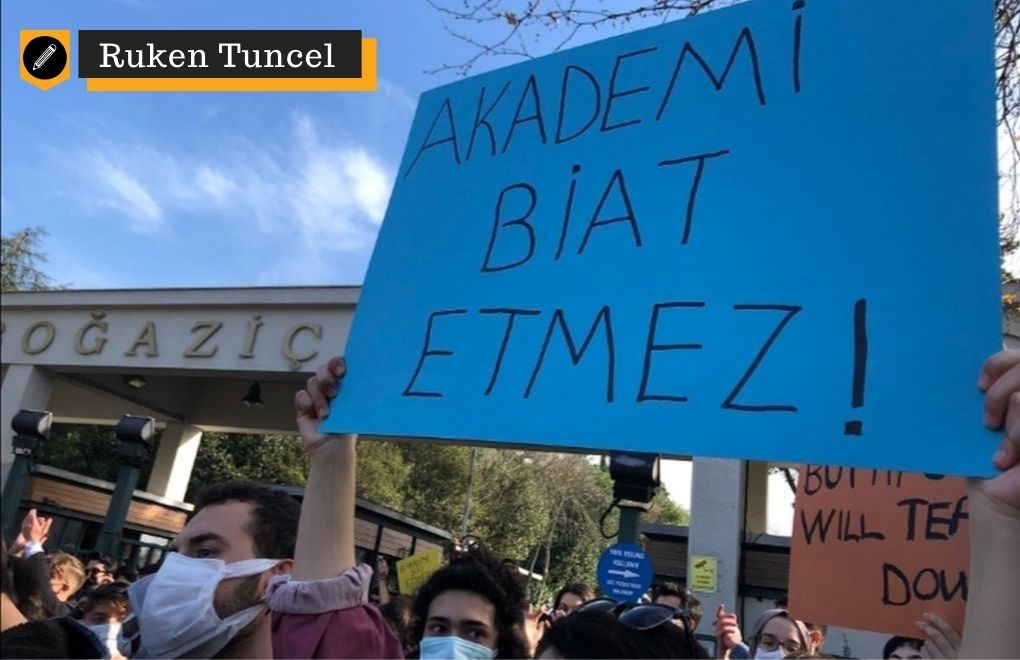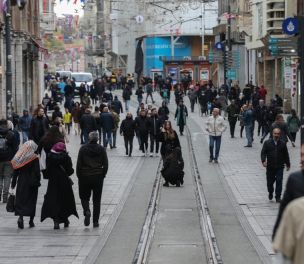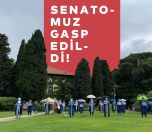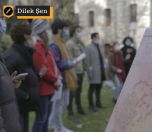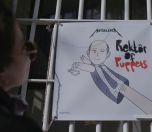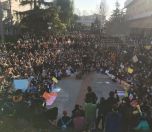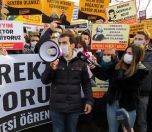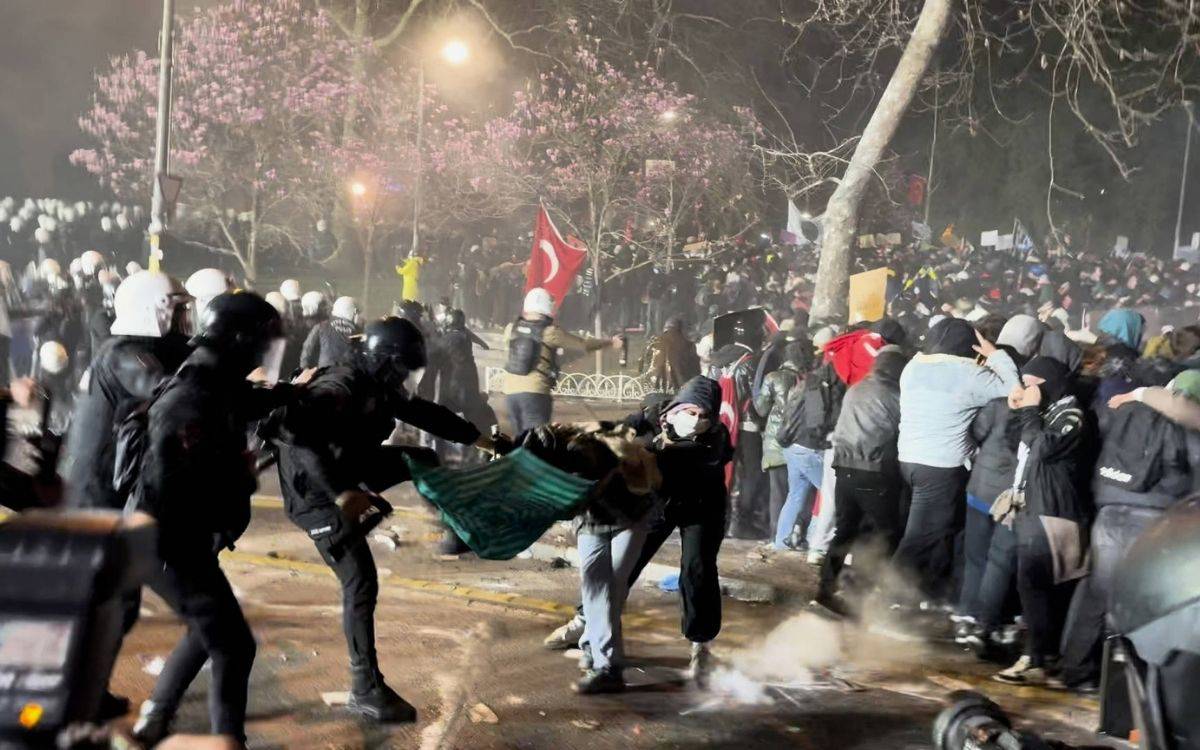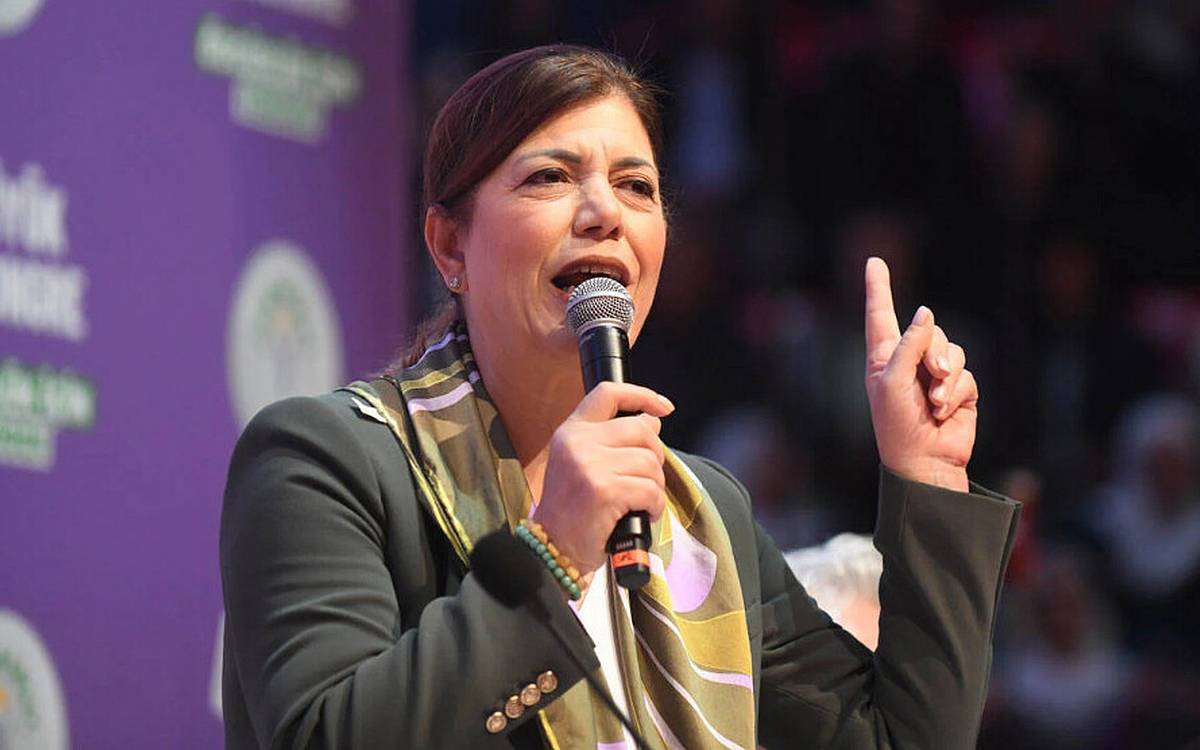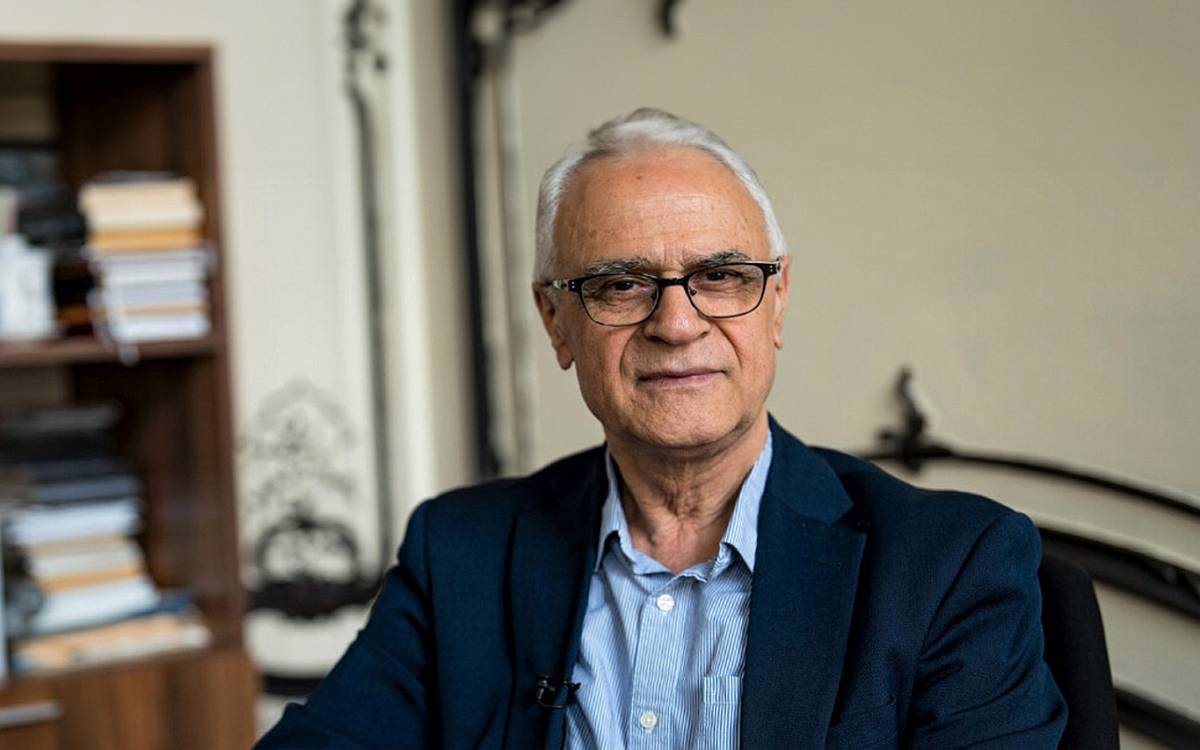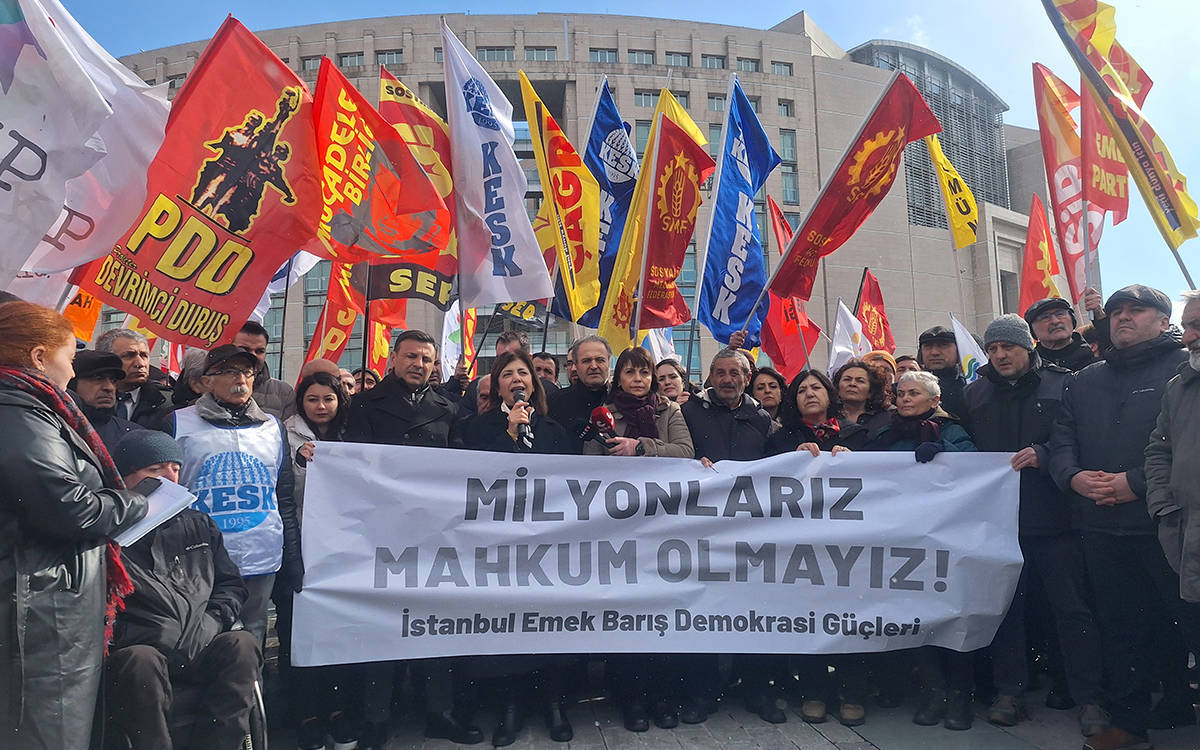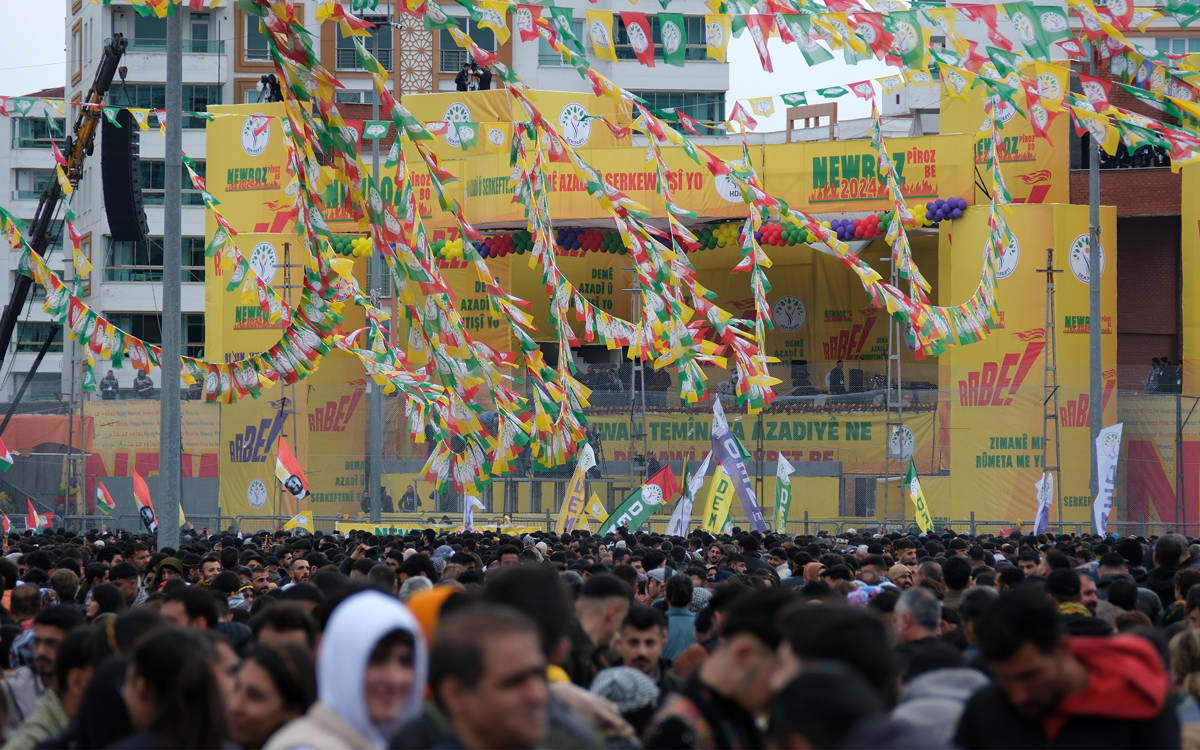"The academia won't obey"
Click to read the article in Turkish
This is the 39th day of the protests against President Recep Tayyip Erdoğan's appointment of a rector to Boğaziçi University.
Ten resisting students have been arrested, 25 students have been sentenced to house arrest so far. Also, hundreds of people were detained during protests at the university and in various parts of the country.
The president's decision on February 6 for the establishment of communication and law faculties in Boğaziçi has sparked further criticism that he is trying to create a group of academics that the new rector can work with.
Prof. Ülkü Doğanay, who was dismissed from the Faculty of Communication in Ankara University for having signed the peace declaration, said, "A decision for opening faculties should be discussed at the university's councils. A decision should be issued that there is a need."
"The intention is very clear. Melih Bulu needs staff to be with him. With the academics they will appoint, staff that will support [Bulu] in councils will be created in a short time," she said.
Why a communication faculty?
Prof. Doğanay also noted that she found the idea of opening a communication faculty "strange."
"[The government] often reiterates that 'We couldn't establish cultural power.' In fact, Fahrettin Altun [presidency's communication head] said recently that 'We will establish our cultural hegemony.'
"I think that's exactly why they attach importance to communication. But what they understand from communication is just propaganda.
"And there is no need to open a faculty for propaganda. If they think, 'We should create cultural capital,' what underlies cultural capital is critical thinking. It's not possible for those who don't have critical thinking to create cultural capital."
"They want nobody to do journalism"
"Journalists learn the technique when doing their profession, we don't claim to teach this at school. We were trying to teach to view things critically, from distance and by questioning.
"This is something that they don't want at all because they don't want anyone to do journalism."
About problems of journalism in Turkey, Doğanay said, "There are no places left for journalism except for a few dissident press outlets, there are no mainstream media at all.
"An education at international level will be provided in Boğaziçi and communication experts will be educated. Where will these people work? We can't call the government's propaganda apparatus 'newspapers.' There is no need for qualified education to work at those places, more importantly, there is no need to be a journalist.
"What they understand from communication is not beyond the army of trolls on social media. Wherever the trolls say, we see the same things in the headlines of newspapers. There is no need to be a journalist or educate journalists for that.
"Apparently, they have a purpose of including their own staff in Boğaziçi, they aim to change the structure there."
Communication faculties in Turkey
According to the Council of Higher Education, there are currently 66 communication faculties in Turkey with three of them, including Boğaziçi's new faculty, stated as "inactive."
There are a total of 2,102 academics in the 66 faculties, including 330 professors. Among the professors, 169 are women and 161 are men.
The total number of the faculties' student quotas exceed 10,000.
What happened?Prof. Melih Bulu was appointed as the President of Boğaziçi University in a Presidential Decree published in the Official Gazette on January 1, 2021. The appointment of Bulu sparked harsh criticisms among both the students and academics of the university as well as in the academic community. Appointed to Boğaziçi, one of the most prestigious universities in Turkey, from outside its community, Bulu was a candidate for nomination to run in the Parliamentary elections in 2015 for the ruling Justice and Development Party (AKP), which is chaired by President Recep Tayyip Erdoğan. The students and several students' clubs of the university campaigned on social media under the hashtag #kayyımrektöristemiyoruz (We don't want a trustee-rector). The call of the students was also supported by the faculty members of the university, who released a joint statement on January 3. "An academic outside Bogazici University community was appointed as rector (university president), which is a practice introduced for the first time after the 1980s military tutelage," read their statement. Amid harsh criticisms of students and faculty members, Prof. Bulu shared a message on his Twitter account, welcoming his appointment to the position, saying, "We are all in the same boat." The students protested the appointment of Bulu in front of the South Campus of the university in İstanbul on January 4. However, the police intervened into the protest with pepper gas and plastic bullets. Next day, it was reported that there were detention warrants against 28 people for "violating the law on meetings and demonstrations" and "resisting the officer on duty." Later in the day, 22 of them were detained. 40 people in total were detained over the protests. All of the detained were released on January 7 and 8, 2021. The protests of students and faculty members at the South Campus of Boğaziçi University have been going on since January 4. Taken into custody over a picture of the Kaaba, a sacred site in Islam, with a Shahmaran figure and four LGBTI+ flags on its corners, two students were arrested and two were placed under house arrest over this picture displayed at an exhibition as part of the protests at the South Campus. On February 1, police stormed the South Campus and intervened into the students' protests. Earlier in the day, the students gathered in front of the campus for the protest. Police hindered the protest while also preventing the students inside the South Campus from joining their friends outside. With the 51 students taken into custody inside the campus in the evening, the number of detained increased to 159. In a statement released by the İstanbul Governor's Office in the early morning hours on February 2, it was announced that 98 students were released from detention. On February 2, Boğaziçi University students gathered in Kadıköy Rıhtım for another protest, which was attacked by the police with plastic bullets and tear gas. 134 people were taken into custody by the police. Two of the protesters were arrested by the court afterwards. On February 6, four more people were arrested and two others were placed under house arrest over their participation in Boğaziçi protests in Kadıköy. On the same day, Erdoğan issued a Presidential decree to open two new faculties at the university. In response to this, the Boğaziçi Solidarity platform addressed an open letter to the "12th President of Turkey." A day later, student Beyza Buldağ was taken into custody for allegedly administering the "Boğaziçi Solidarity" Twitter account and arrested for "provoking the public to hatred, enmity and hostility" and "provoking to commit crimes" over both the letter and other Twitter posts. As of February 7, the Boğaziçi Solidarity platform announced that at least 560 students were detained, 25 were sentenced to house arrest and 10 were arrested. Students have been arrested on charges of "degrading or provoking the public to hatred and hostility" and "resisting to prevent fulfilment of duty" as per the Articles 216 and 265 of the Turkish Penal Code (TCK). On February 10, one more student was arrested. About Melih BuluProf. Melih Bulu was appointed as the President of Haliç University on January 17, 2020. In office in this foundation university for less than a year, he has been appointed as the President of Boğaziçi University. He was a Dean and University President at the İstinye University from 2016 to 2019. Between the years of 2010 and 2016, he was the Head of the Business Management Department of İstanbul Şehir University's Business Management and Management Science Faculty. He was the General Coordinator of International Competitiveness Research Institute (URAK), an NGO working on economic competitiveness of cities and countries, from the year 2017 to 2019. Since 2011, he has been the Executive Board member of the İstanbul Electric-Electronic Machinery and Informatics Exporters R&D Market. In 2002, he founded the Sarıyer District Organization of the ruling AKP in İstanbul. In 2015, he was a candidate for nomination to run in the Parliamentary elections from the AKP in the first election district in İstanbul. He studied Industrial Engineering at the Middle East Technical University (METU) in Ankara in 1992. He did his MBA and PhD at Boğaziçi University's Department of Management. |
(RT/VK)





